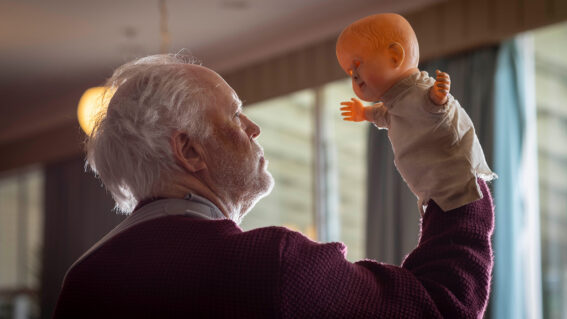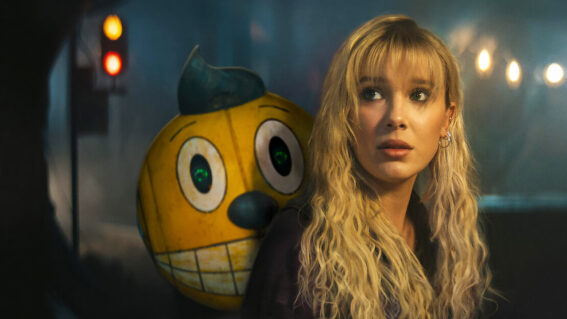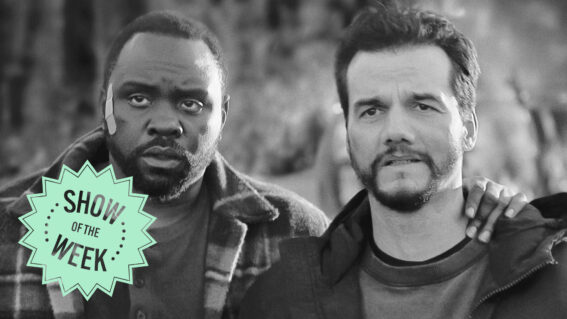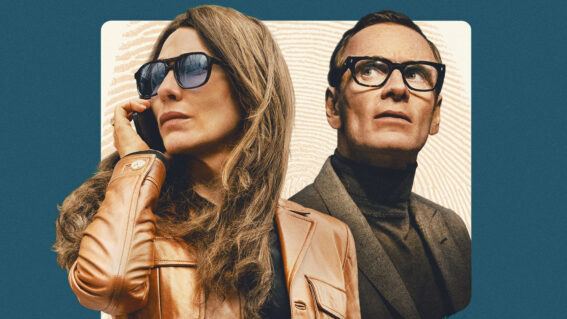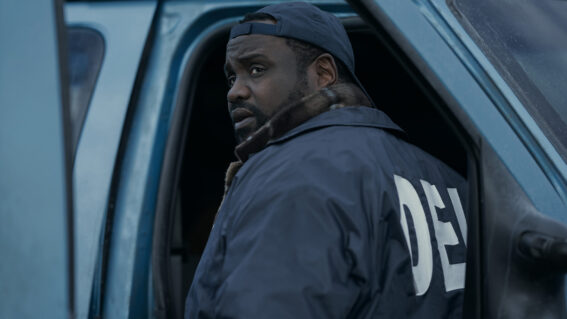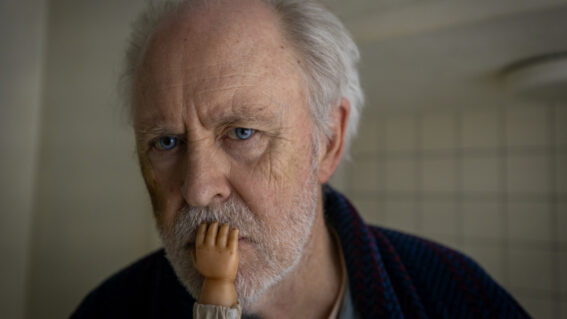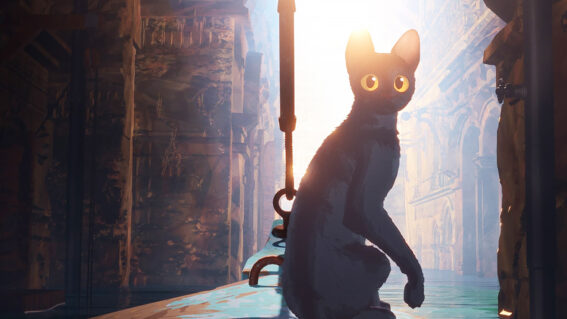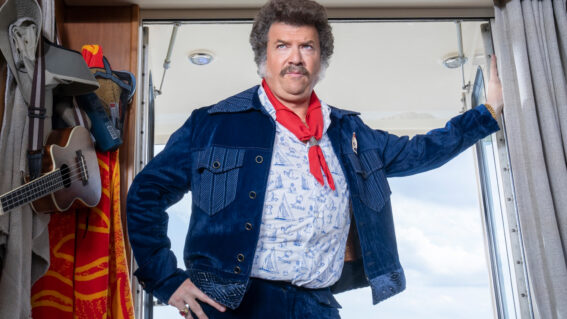Interview: ‘Baby Driver’ star Ansel Elgort
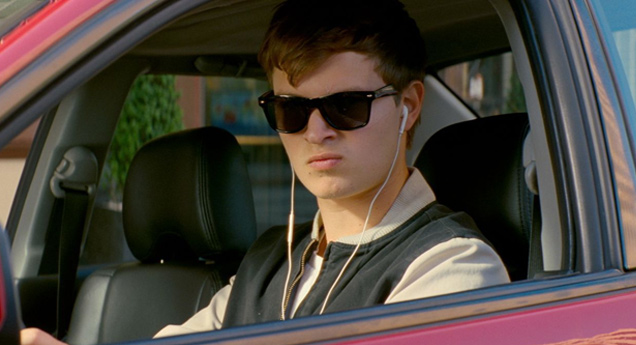
While looking on paper a risky proposition – a music-infused, car-focused, heist comedy-drama-romance – Baby Driver is certain to become director Edgar Wright’s most commercially successful movie to date after a stunning first weekend at the US box office. Wright was in New Zealand to promote the film’s release – alongside his hard-driving, iPod-loving, lead Ansel Elgort.
FLICKS: Is it weird being down in New Zealand and seeing the US box office, and what the response is like internationally?
ANSEL ELGORT: It’s really great being part of a movie like this that people are seeing. And that’s the one thing you can never guarantee when you do a movie. If you have a great time doing a movie it can be a great movie, and all that stuff, but you can’t guarantee if people are going to actually go see it. And so it’s great people are going to see it. Being in New Zealand is pretty awesome. The whole moment is a pinch-me moment for me, for sure. Being part of the film, how well it’s doing, and then you put the icing on the cake that’s like, “Oh, I’m in fricking New Zealand.” I mean, I’m on the other side of the world promoting it. It’s pretty awesome.
‘Baby Driver’ is a funny one because we’ve got no stake in it, we’re just moviegoers. But even as moviegoers lots of people are really rooting for it to be great to watch, and also for it to do well. It kind of feels like there’s a bunch of stuff riding on this film in a way that’s about more than your career, or Edgar’s career, or the studio. That we just really need some movies that are new things.
Yeah. It’s true, we do. I’m rooting for it, too, obviously because I’m in it, but from that third-party point of view, I want it to be a successful film because we need studios to make this kind of movies again. It seems like they are very reluctant to make these kind of movies. So they want to make big movies, sequels and number five, and all that kind of stuff, but that’s not what movies are about. And movies have become a lot about business, and there’s either a movie that’s made for a tiny budget or a movie that’s made for a big budget, and there’s kind of no in-between. But it’s nice. Hopefully studios will start financing movies like this again and allowing original stories to be made and told.
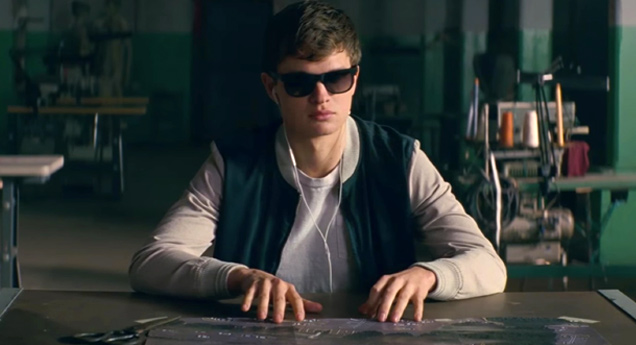
After you first heard about ‘Baby Driver’ was there a moment where you went, “Oh, they’ll never make this”?
No. I guess when I read the script and first met with Edgar I wasn’t jaded enough [laughs] to think that they would never make it. I was like, “Wait, what’s going on with that movie?” And they were like, “Well, there’s no financing yet.” And I was like, “Why not? It’s a great script,” and, “Why isn’t there financing?” And I get it now, but I was very happy when it got finally financed, and I think a big part of that was getting the incredible cast we have all on the film. Without them, it wouldn’t have happened. So it just goes to show, yeah, it is hard to get this kind of movie financed.
What was the mood going to work every day on this film like? Was it different to other films that you’ve made in the past?
No, it wasn’t necessarily different, but it was a great vibe. It was very great. And everyone was always excited to be on set, and so was I. It was like when you have those years in school where you have so many friends, and you’re learning cool stuff, and maybe you’re part of the sports team that’s doing well, so you want to show up. It had that feeling to it. I became great friends with Kevin [Spacey], and Jamie [Foxx], and Jon [Hamm], and Flea [Flea]. And everyone in the movie I really became close with and I still am close with, which is cool, because these are legendary people who are also a bit older than me, and you never know what to expect when you’re part of something.
It’s still work. But these are all guys who have been doing it long enough, and instead of being jaded they always try to find the fun in everything. And they really kind of also encouraged me anytime that I was, “Well, I’m tired. We’ve been doing 16-hour days for months with no weekends.” They said, “Listen, man, this is amazing [laughter]. You got to be appreciative of this. You’re killing this, and this is going to be a great moment for you.” And Jamie is one of the most positive guys I’ve ever met. And through the whole filming process and also through the whole press process back in America – and we did some overseas stuff also with Jamie – it was always sort of a positive atmosphere.
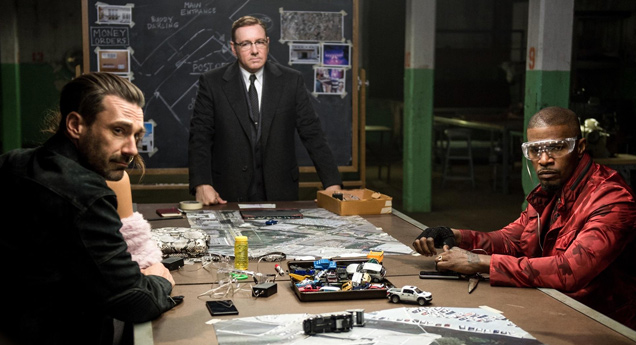
Because of the way the film is so heavily set to the beat of music, literally, with the songs being really essential to the construction of its scenes, how did those things integrate day-to-day?
It actually reminded me of when I did musical theatre growing up, because that’s how I got into acting. It felt natural, and it reminded me of the beginning and sort of why I fell in love with entertainment in general, which is the way that music interacts with movies and dance. One of my favorite movies was West Side Story, and some of my favorite shows that I would see live are shows like West Side Story. And so when this movie had this whole musical element to it, I really became obsessed after reading the script and really started fighting tooth and nail to play Baby.
Obviously, there’s dance sequences, and there’s action, which has got quite dance-like beats to it. But I suppose that just the way the music seeps into the film, it’s kind of there throughout almost the whole thing, right? Like the pace of your walk, or the way the dialogue comes out. So it’s different, I suppose, to have that infused at this kind of level?
Absolutely. It helped, though, because when you first start acting in your acting class, your teachers are always talking about rhythm and pace, and there has to be sort of that rhythm to it. Whenever there is music in the film, we, as actors, had the music there. So that music gave us that rhythm. And even in scenes that weren’t choreographed, scenes like between Lily and I in a diner, they had the music. We had the music backing us, and it sort of helped us through those scenes, and allowed us to connect because we’re both hearing the same song or we’re both feeling the same vibe. And it felt like it was actually very helpful and it heightened the whole experience.
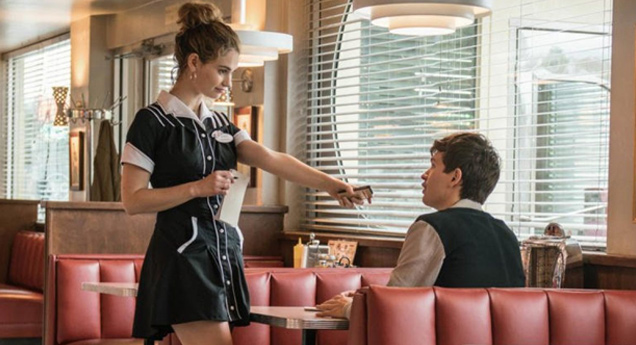
The music’s obviously really personal for Edgar on this film. But please don’t let that fact put you off answering this next question. Was there anything that when you heard for the first time as a song in the film you just went, “Oh, God, I don’t like it. Oh, God, I don’t get it.”
No. My biggest thought was, “Where does he find this stuff?” Edgar has an encyclopedic knowledge of film, but also of music, and some of the music I’d say, “Yeah, I’ve never heard of the artist. I’ve never heard of the song.” But yeah, like The Incredible Bongo Band, Bongolia, it’s like, “What is that song?” But it’s sick. Such a dope record. And the way it works itself into the movie is super cool. It does create rhythm to it and all the old stuff in the diner just feels so nostalgic.
You know what? I think what’s so great about the music in this film, and the way the film looks visually, and the way he integrates the iPod into the film, and the way the dialogue sounds, is it’s all timeless. There’s nothing that will ever date this film. Because even the iPod is the iPod classic. It’s not the touchscreen one and you don’t see smartphones. When Baby is trying to get in touch with Debra, he calls her through the diner phone. But it’s not confusing, it’s not like, “Wait why doesn’t he call her on his cell?” And the reason is because you know that Baby is a criminal and he can’t have a cellphone. He’s going to be tracked. So it’s all there and it’s not forced. But it is there. Every element of the film is timeless. And I think it will allow this film to be sort of a classic. In 20 years you’ll be able to watch the film and won’t be like, “Oh my God, that was so 2017.”
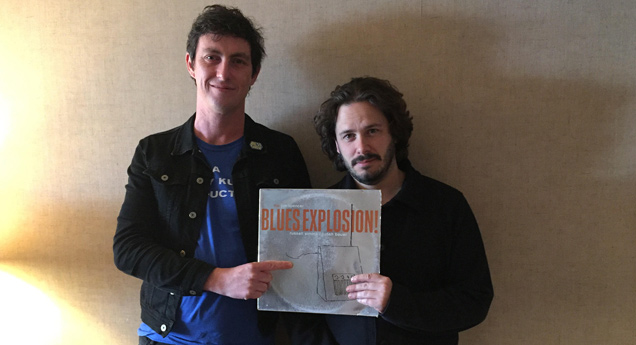
I have listened to The Jon Spencer Blues Explosion album Orange more times than I could count, but you probably have listened to the song ‘Bellbottoms’ more times than I have by now.
Yeah. I’ve heard it a bunch of times [laughter].
How many more times do you think you can hear it before your head caves in?
I actually love it now.
Oh, you can keep doing it. That’s great!
Yes. When I hear it now it’s like a great memory because it was only positive hearing it…
…like 40,000 times.
Yeah, because it was like we were doing this big action sequence with dance, and then there was all those awesome Subaru stunts, and I’m in the car with Jon Hamm, and Jon Bernthal, and Eiza González. And it was just a lot of fun. The thing about what music does is it brings you back to the first time you heard it or what that song reminds you of. And that song reminds me of great times on the set, so I’ll never be upset hearing that.
Does your iTunes “most listened to” just have all the songs from this film and then a huge gap before the next things?
Well, the funny thing is that Edgar gave me the soundtrack before I was cast, way before. Sort of before the first audition – I don’t know who else auditioned, what men auditioned for this, or boys, or whatever you want to call us, babies [laughs] – but I had the whole soundtrack, and that was back in 2014. So before we even did the movie I’d heard the soundtrack so many times and it was a big part of my iTunes. And I actually have some cool gems that didn’t make their way into the movie or got cut out. There were only a few things, maybe only 20% of it different, most of it is there. And yeah, that soundtrack does have a lot of plays.
Is it helpful when you have a director that has such a defined idea of what this thing needs to be, or does it become frustrating if that’s a difficult thing to match up with?
No. You want a director who directs. You want a conductor who conducts, and a baker who bakes, I don’t know [laughs]. Edgar is really a director, and he knows exactly what he wants. And as an actor, you’re so lucky when you have somebody who’s telling you what to do. You don’t have to figure it all out yourself. It’s like it makes your job easy.
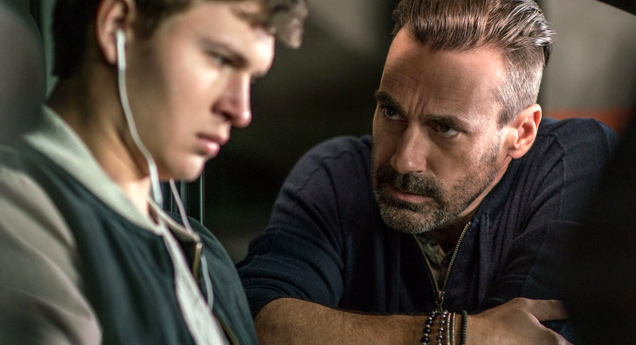
You mentioned before how supportive your castmates were. And I guess exiting this process is a bit like you’re a gang now, right? You’re cemented with these guys for a while.
Forever, hopefully. I hope that I will always be friends with Kevin, and Jaime, and Jon, and Flea. Obviously Lily, and Eiza, and people who are more my age, we’ll always be friends and we’ll remember that movie we did that sort of made our careers.
It’ll be you and the young guy one day going, “No, take it from me. You want to do a movie like ‘Baby Driver’. Don’t fuck it up.”
Yeah, exactly. But you know, what I really did learn from these guys – from Jaime, and Kevin, and Jon – was when I’m that age and I’m on a film and there is that young dude, I will try as hard as I can to be as generous, and warm, and supportive as they were to me. And they probably made my job a lot easier, because I felt like I had a lot of support from these guys who I respected so much.
That’s awesome. That’s a really nice attitude to hear, because I don’t think it’s always that way, right?
I don’t know. I’ve never had a bad experience, but actors aren’t always the nicest dudes. I’ve met some actors, luckily I never really worked with them, but met people who clearly didn’t like me because I was a young actor. Or they’ve made a joke about it. Actually, the first time I met Mickey Rourke it was a joke he said to me. Someone introduced me and said, “This is a great young actor.” And he said, “You’re a young actor?” And I said, “Yeah.” And he said, “I hate young actors [laughter].”
Oh God.
And maybe he was joking, but I don’t know if he was. You know what I mean? And these guys… Jamie could not be more supportive. I remember we were doing James Corden and they told us before the show, “Okay, Jamie, you’re going to sit next to James Corden, and Ansel, you’re going to sit next to Jamie on the other side.” And I sit on the couch, sort of leaving a spot for Jamie to sit next to James, and Jamie, in front of the whole audience, just tells me to move over. And I look at him being like, “But– ” and he was like, “Move over.” And I sat next to James and I sat in between them. And the same kind of thing happened on some other British television show we did, and he was like, “Man, this is your movie. It’s your movie, man. This is about you.” And when we do interviews at BBC and he’d say, “What are these shots you guys are shooting?” “Well we have a two-shot on you.” And he said, “Does Ansel have a single?” And they would say, “No, we just have a two-shot.” He says, “You got to put another camera here on a single on him.” I mean this is like Jamie Foxx is doing this.
He’s basically being my publicist. And he’s like, “Man, this is your moment and you’re killing this so much.” And sometimes in interviews, if they would ask him a lot of questions because he’s Jamie Foxx – and I would ask him a lot of questions if I was an interviewer – he would literally start asking me questions. He would just say like, “You know what? That’s actually an interesting question. I want to know what Ansel thinks about that.” And that’s Jamie Foxx. So these guys are so generous. And that’s not always what you expect from people, so I will be forever grateful for that.
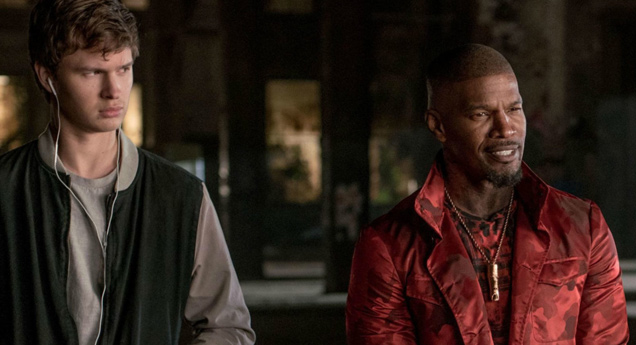
After you’ve had this fantastic experience making this film, it’s performing really well, everything going really well, you’re friends with the cast– are you set up for just something disappointing to happen next?
I am going to take my time. And I don’t think that is everyone’s attitude after this kind of thing, but I’m going to take my time. And I have three things that I care about when making a movie, or choosing to do a movie, or chasing a movie, and that is a director, script, and character. And if two out of the three are there, then I’m pretty excited. And if three out of three are there, then I’m like, “That’s it.” And I might wait for two and a half or three to be there for me to do my next movie.
You’ve bought yourself a little time.
I’m going to take time. Yeah. I’m 23 years old, so if I only do two more movies in my 20s that are as good as Baby Driver, that will be a miracle. When I did The Fault in Our Stars, I had the attitude of “I’m so lucky I’ve been a part of something that was a success”. I felt as though I got to do a performance and I got to really act. And I’m happy about that, and this might be the only one I ever do my life, but that will be cool. I got to do it. And if I go back to being a working actor and in 10 years I’m just doing Law and Order here and there, that will be fine, because when I got into acting, that was my goal. My goal was to be a working actor and not to have to be a waiter at the same time.
You’ll still be going to intro screenings of ‘Baby Driver’ if that happens. People will still be going to watch that film.
So I’m so lucky that I’ve had this, too, but now I have that same attitude. If Baby Driver is my last great film, I’m very grateful that I’ve been able to be part of something that is this great, and hopefully, of course, I get another opportunity like this. But if I don’t, I’m still grateful.

